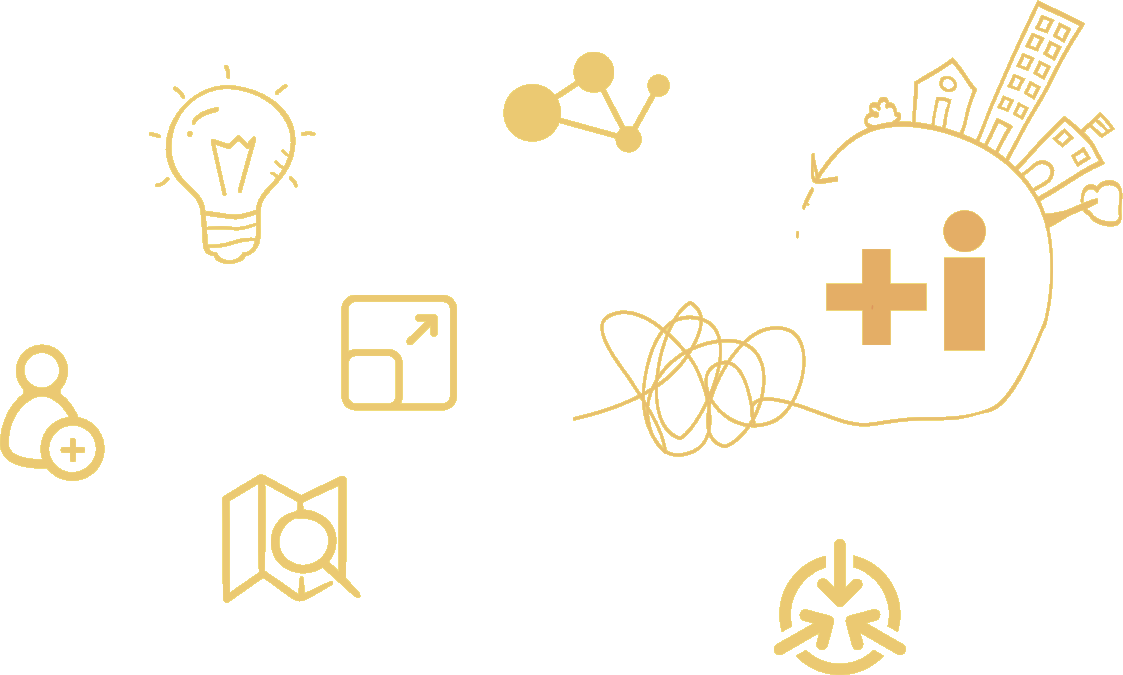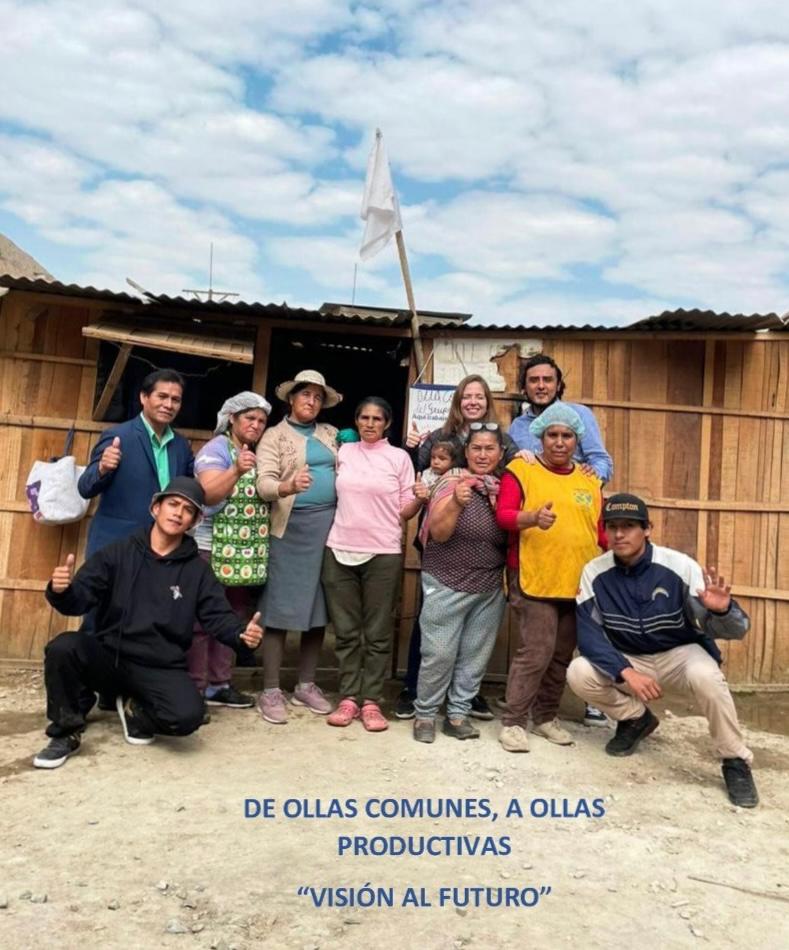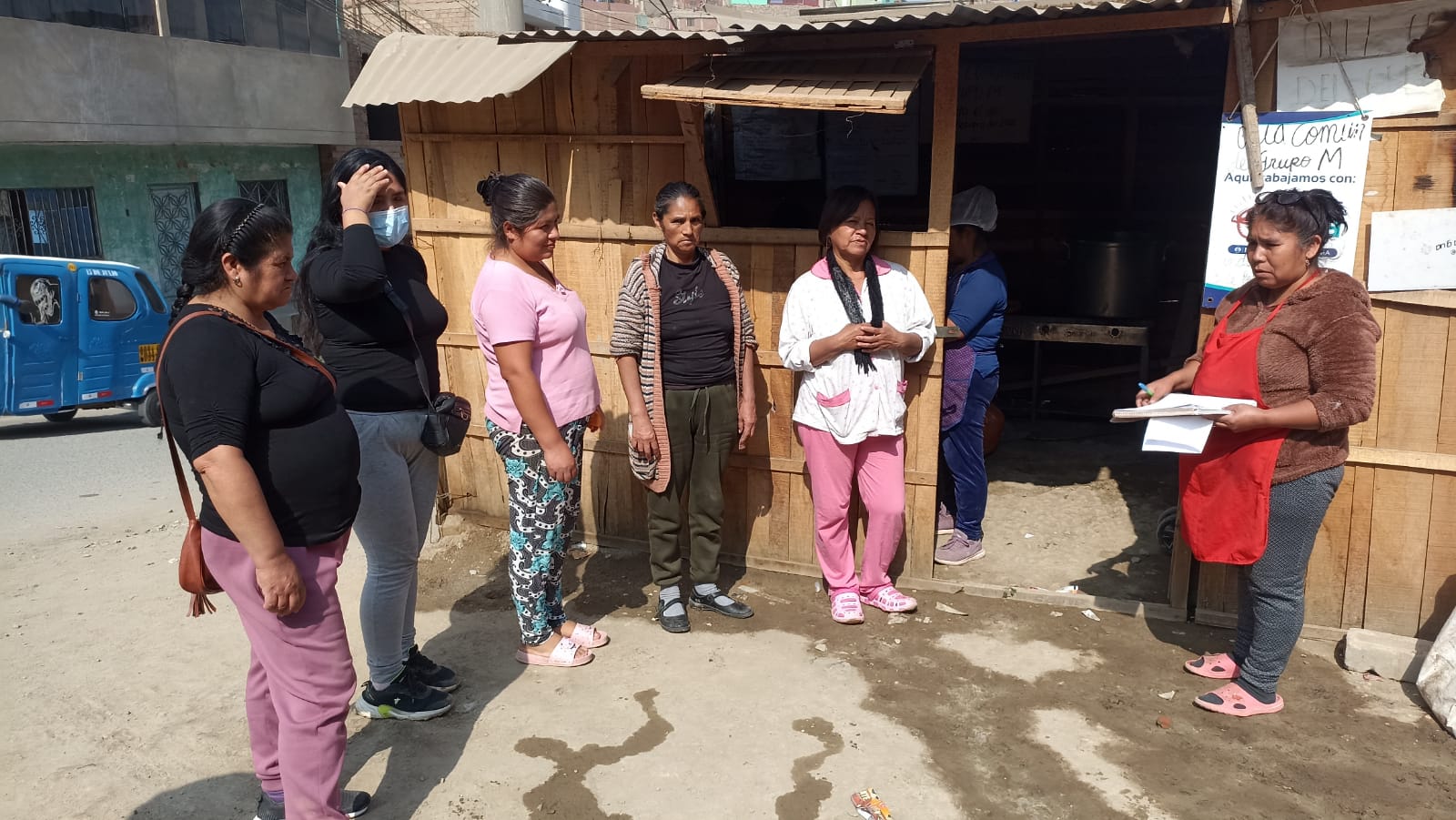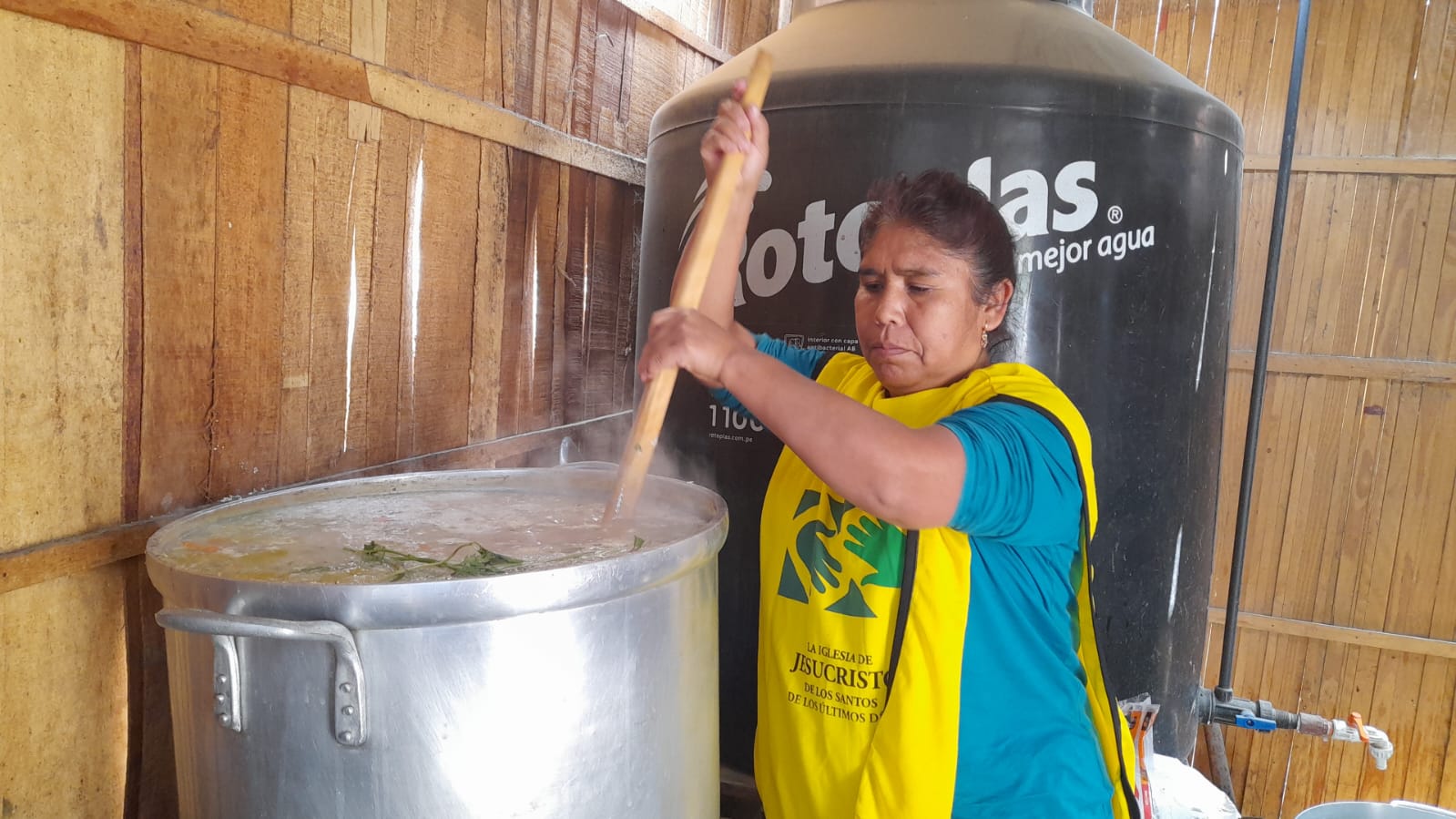The municipality of Ate is located in the province and department of Lima, in the central and eastern part of Metropolitan Lima, on the left bank of the Rimac River valley. It is the tenth district with the largest territorial extension (77.72 km2) and the third in population, with 599,196 inhabitants (INEI, 2017 census).
In terms of food insecurity, the National Institute of Statistics and Informatics (INEI, 2019) reported that more than 4 million people suffer from hunger in Peru. In turn, a UNICEF report (2019) recorded that more than 44% of children aged 6-35 months suffer from anemia, and more than 12% of children under 5 years suffer from chronic malnutrition.
In Ate, 65 formalized Ollas Comunes (Community cooking pots) operate in which more than 1160 women entrepreneurs work, benefiting more than 4000 people. However, there are many informal Ollas Comunes, which means that women receive charity or political or business handouts to guarantee food supplies, which exposes them to possible business or political whims or benevolence. The profile of the population affected by this reality is poor families in urban-rural areas whose heads of household are women between 25 and 50 years old.
Due to the importance of the Ollas Comunes in the populous districts of East Lima, it is urgent that mechanisms be sought to promote their self-sustainability and transformation into productive units. Although support from the State and the private sector has been increasing in recent years (especially in the case of the recently formalized pots), many of them continue to be sustained by the scarce resources provided by the mothers and direct beneficiaries.





